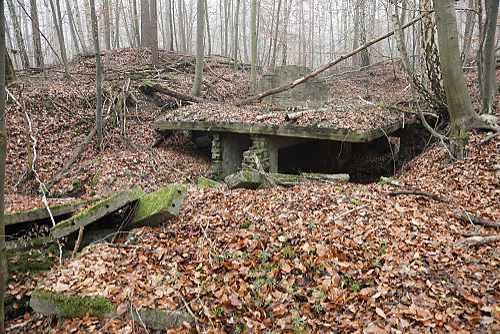Halina Golczowa: The Night Shift
Info / context to the poem
After the head of the SS-Economic-Administrative Main Office, Oswald Pohl, announced in March 1942 that the labor force must be "exploited to the utmost possible limit so that labor can yield the greatest return," working hours at Ravensbrück increased from the original eight hours, six days a week, to eleven hours, seven days a week. In the final months of the war, two twelve-hour shifts were the norm in the armaments industry. Italian prisoner Lidia Beccia Rolfi testified, "Work takes place in two shifts: twelve hours for the day shift with a lunch break for soup, and twelve hours for the night shift with a quarter-hour break at midnight. Day and night, the slave girls work full time, with no breaks, not even for going to the latrine."
The poem "The Night Shift", written by Halina Golczowa in Ravensbrück in 1942/43 and smuggled out of the camp with other documents, probably refers to the inhumane working conditions in the SS-owned Texled factory ("Machines roar, Needle drags the thread, Sharp knife shines...") The workshops were located on the camp grounds. There, the women had to produce prisoners' clothing and uniforms for the Wehrmacht and SS, among other things.
Later, Halina Golczowa is transferred to the subcamp Neubrandenburg, where she has to produce parts for fighter planes. Due to the catastrophic living and working conditions, she falls ill with rheumatism and loses an eye. (C. Jaiser)
Images and documents

Jeanne Letourneau
L'appel avant le lever du jour
Mahn- und Gedenkstätte Ravensbrück
Signatur: SV817E2

The Night Shift (manuscript)
The poem was written by Halina Golczowa in Ravensbrück in 1942/43 and smuggled out of the camp with other poems and documents.
© Staatliches Museum Auschwitz-Birkenau
The Recordings
The sound recordings were provided by Constanze Jaiser for Voices from Ravensbrück.
They were produced in the framework of:
RAA Mecklenburg-Vorpommern / zeitlupe | Stadt.Geschichte & Erinnerung (Hrsg.): „Aby świat się dowiedział…” / „Damit die Welt es erfährt…”
Eine Flaschenpost aus dem KZ Ravensbrück.
Polnische und deutsche Jugendliche lesen Gedichte, Briefe und Berichte.
CD-Produktion und Booklet: Jacob David Pampuch. In Kooperation mit der Regionalbibliothek Neubrandenburg.
© Waren; Neubrandenburg: RAA Mecklenburg-Vorpommern / zeitlupe | Stadt.Geschichte & Erinnerung, 2018



 Halina Golczowa was born in Warsaw on September 20, 1901.
Halina Golczowa was born in Warsaw on September 20, 1901.